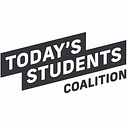DC Student Summit Participant Q&A
What is your name, age, and what college do you attend?
My name is Kasie Gilbert, I am 26 years old, and I hail from Atlanta, Georgia. I recently graduated from Kennesaw State University with bachelor's degrees in integrated studies and human services. I am currently enrolled as a graduate student at American University studying to receive my master’s in strategic communication & advocacy.
Are you involved in any organizations on your campus or in the community?
The graduate program I’m currently enrolled in is delivered entirely online. As a resident of Georgia, my access to participation and student organizations at American University is limited. However, I was a student ambassador for the Office of Student Advocacy at my alma mater, Kennesaw State University. During my two years in that position, I discovered my passion for student well-being and I still work very closely with the office as an alumna. Currently, I am collaborating with other student leaders and alumni on an initiative I created at the beginning of 2020. Its mission is to offer resources and wisdom on life skills critical to students after graduation. Higher education institutions have become very focused on career development and success, neglecting to teach students how to approach the “real world” after college.
You participated in the DC Student Summit this past march. How would you describe your experience? What was your favorite event or workshop that you participated in? What did you learn?
My experience was very enriching and added “fuel to the fire” I have kindled over the last three years. The conversations I had with other students and the (virtual) group setting was the highlight of the summit. What really drives change is the tenacity of a collective force that stands behind it. The talks we shared were a combination of personal storytelling, concept development, and genuine vulnerability of our unique student experiences. There were two impactful takeaways from the entire summit: I gained a clearer understanding of policies challenging the full potential of students and also a deep reassurance that there is a vast amount of people as devoted as I am to addressing those challenges.
Why do you think it is important that legislators hear first-hand from students about the challenges they face in higher education?
It seems obvious — no one can speak on the student experience better than a student. As self-evident as that may be, more often than not, students are excluded from crucial policy matters that directly affect them. Even more unsettling is a historic dismissal of the implications ineffective policies have on student personal wellbeing and integrity. The vast spectrum of individual realities, cultivated on campuses across the nation, cannot be whittled down to any simple observation crafted by policymakers, no matter how well they perceive themselves as representatives.
As a student, how would you recommend other students get involved and engaged in student advocacy?
The best place to start is with yourself. When it’s personal, the impact you can have is more probable. From my own standpoint, the most compelling obstacle hindering students from engaging in student advocacy is a collective disconnect between them and the university. Yet, that in itself is a motivator for the student who can recognize it is not their problem to face alone. For me, I was compelled to take that on after witnessing many of my friends constantly overwhelmed with the impact everyday life had on their academics. Yet, they had little faith the institution, they invested so much in, would invest in them in return.
What do you think is the most pressing issue in higher education? What needs to be changed on your campus and campuses across the county as today’s students have become more diverse in age, race, and income level than ever before?
If our ultimate goal is to bring the student voice back into higher education policy, then we need to bring higher education back home. Universities across the nation are small representations of the larger world, and as we’ve seen in a larger world, the more expansive we become, the more difficult it is to communicate and evolve within the ecosystem we actually control. The paradox of what is promised in a university’s mission statement and what is realistically provided must be addressed at a local level, where the student voice is unmistakable.
What higher education policy or issue are you most passionate about advocating for or against?
The foundations of higher education are based on outdated student experiences and societal expectations. Policymakers and university leaders have a responsibility to invest in the needs of students that exist inside and outside of the classroom. It is unacceptable students are leaving the classroom and have no home to go to. It is unreasonable to expect students to prioritize every deadline over their employment, their families, or their mental health. And it is not permissible that the cost of education remains the primary barrier to student achievement.
What was one thing you learned from the DC Student Summit and how will you apply that to your future advocacy work?
After each one on one meeting with representatives, I had an epiphany I didn’t anticipate. There was a disconnect between the changes I advocated for and those whom I trusted to not only listen, but also to hear my message. Representatives were already well informed on the issues I presented, so I felt ineffective initially. When we regrouped to share our takeaways, I expressed my confusions and a wonderful fellow advocate (whose name I desperately wish to recall) gifted me with insight that “brought it all home.” She made the point that rings throughout much of what I have written thus far:
“The space in which I have the most power to narrow similar divides is at my university, returning with a deeper understanding of how to actualize the changes necessary for students to become the most genuine version of themselves in higher education.”
